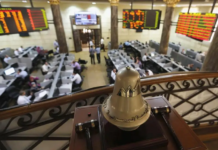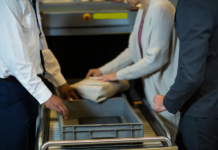Egypt is one of the special countries that owns an endless number of antiquities and monuments, estimated at quarter of the World’s antiquities and monuments and valued in trillions of Dollars.
The dazzling characteristic about Egypt as an incomparable historical country is that it has a distinct variety of antiquities that belong to various ruling eras; Pharaonic, Jewish, Coptic, Roman, Islamic, royal antiquities & monuments, which makes it a historical hub and a hit destination to visit by tourists for holding the world’s unique cultural heritage.
There is no doubt that such a rich historical country has been subject to many robberies; actually since the era of the pharaohs which is why pharaohs were smartly tricky when it came to selecting a place to bury their sarcophagus and wealth. In fact, ancient Egyptians’ tombs embraced extremely valuable belongings which they believed they would use in the afterlife.
One of the most famous and extremely valuable tombs that ancient Egyptians marked their history with, is the tomb of the Golden King Tutankhamun, which was one of the rare occasions a tomb (was found intact). Discovered in November 1922 at the Valley of the Kings, the discovery has been accredited to the British Archeologist Howard Carter, yet recently British Professor Bruce Parkison, Egyptologist at University of Oxford & a fellow of the Queen’s College, explained in an interview with Content Creator Beshir Shousha that accusations were directed to Howard Carter that he actually smuggled valuable belongings from the golden King tomb. Parkison clarified that the photos that has been taken for the tomb when Carter entered the tomb, supposedly for the first time, clarifies that the belongings have been rearranged in a staged way, which actually indicates that most probably the day before the discovery, Carter was already there and he secretly entered the tomb from a secret stairway. It is to be noted that the belongings of the Golden king will be displayed at the Grand Egyptian museum, which will soon fully open its doors for visitors from all around the world, while it is estimated that the value of the findings of the tomb exceed One billion dollars.
Another historical era where its antiquities have been aggressively smuggled, is the era of the royal dynasty of Muhamed Ali Pasha’ the Royal family that ruled Egypt for over 100 years, which ended by the revolution in 1952, with the termination of King Farouk ruling era. Following this turbulent era, auctions were held to sell many belonging to the royal family, personal belongings of king Farouk as well as antiquities that were smuggled from Egyptian Royal palaces were put on sale. Unfortunately, not many antiquities that belong to the royal family have been seized in Egypt ports before they were smuggled outside the country.
Dr. Gamal Abdel Reheim Professor of Archeology and Islamic Art at the Faculty of Archeology, explains that a special committee from The Ministry of Tourism & Antiquities, closely monitor the robbed antiquities that has been seized at Egypt ports; the committee is actually responsible for examining those artefacts, and once its originality is approved, a lawsuit is directly filed against the smugglers. Recently, a temporary exhibition has been held at Prince Muhammad Ali Museum in Manial Palace, to display various artefacts that mainly belong to Muhamed Ali’s royal family which were prevented from being smuggled out of the country. Related to the antiquities that has been displayed at the exhibition, Abdel Reheim explains: “The belongings of Muhamed Ali royal family, used to be designed and furnished by European designers, their initials used to be engraved over their belongings; which make them easily distinguished compared to any other artefacts, during the last decade many belongings were seized so the ministry decided to hold a temporary exhibition to display almost 70 antiquities that belong to the royal family; vases, wooden ornaments, tapeseries, ornamented swords and personal belongings of King Farouk, as well as artefacts that belong to the Synagogue were on the top of the list to display.” he clarifies that many of the seized artifacts are currently put in storage, and yet some are displayed in museums and we actually wish for more to be displayed.
There is no doubt that Egypt has recently intensified efforts, particularly over the last decade to prevent antiquities from leaving the country and to repatriate those that have gone abroad unlawfully. Minister of Foreign Affairs Sameh Shoukry, stated that Over the past decade, Egypt has recovered 29,500 artefacts, during a recent press conference with Minister of Tourism and Antiquities Ahmed Issa on the restoration of the Green Coffin from the United States, pointing out that the Egyptian state is working hard to preserve Egyptian antiquities and recover those smuggled out of them.
Since 2011, Egypt has recovered 29,300 illegally smuggled artefacts. In 2021, 5000 artifacts were recovered from the United States of America, 115 from France and 36 from Spain, according to Shaaban Abdelgawad, Director of the ministry’s antiquities repatriation department.
Abdelgawad said that the trade of Egyptian antiquities was legal “like any other trade” until a 1983 law stopped artefacts from leaving the country with the exception of temporary exhibitions.
In the decades that followed, famed Egyptologist and archaeologist Zahi Hawass, made it his personal mission to return stolen artefacts to Egypt. In 2002, on his appointment as secretary general of the Supreme Council of Antiquities, he created the antiquities repatriation department.
Figures estimated the annual cost of the illegal antiquities trade vary widely, from hundreds of millions of dollars to billions.
Katie Paul, co-director of the Antiquities Trafficking and Heritage Anthropology Research Project, a study into transnational trafficking and crime financing by anthropologists and heritage experts in the US, says the growth of social media has exacerbated the issue. “Now you can simply get on a Facebook group called ‘pharaonic antiquities on sale’ in Arabic and offer it to thousands of people all at once,” she says. An added challenge is the lack of transparency in auction houses. “It’s the world’s largest unregulated market, It’s the only market where you can do multimillion-dollar transactions and not be required to disclose the buyer and seller.”
Finally the challenge to combat the illegal theft of Egypt’s treasure, that has been triggered since the 2011 revolution, is currently being confronted by fines and 5-25 years in prison for those found guilty, while, on the other hand, work on returning Egypt’s treasures is at its peak. “Any piece that was taken out of Egypt illegally, it will come back. That is our main target,” Mr Abdelgawad says. “If it is in museums or private collections or being sold online, it will come back, sooner or later.”
Hawass expressed support for efforts by Egyptian-British lawyer Gihan Al-Hosseini residing in Britain, to have Egyptian antiquities returned to Egypt, notably the Rosetta Stone from the British Museum. English law prohibits the return of antiquities, and therefore Al-Hosseini submitted a petition to the British Parliament requesting it to discuss amending the law on the recovery of antiquities in Britain. The petition was accepted by Parliament on February 6, and it was published on its official website for the collection of signatures. At least 100,000 signatures are required before the petition is considered for debate in Parliament. “We appeal to all Egyptian and Arab citizens who are British subjects or permanent residents in the UK to sign.”
The link to the petitions is https://petition.parliament.uk/petitions/632459
The deadline is 6 August 2023 as all petitions should run for six months.
Egypt is one of the special countries that owns an endless number of antiquities and monuments, estimated at quarter of the World’s antiquities and monuments and valued in trillions of Dollars.
The dazzling characteristic about Egypt as an incomparable historical country is that it has a distinct variety of antiquities that belong to various ruling eras; Pharaonic, Jewish, Coptic, Roman, Islamic, royal antiquities & monuments, which makes it a historical hub and a hit destination to visit by tourists for holding the world’s unique cultural heritage.
There is no doubt that such a rich historical country has been subject to many robberies; actually since the era of the pharaohs which is why pharaohs were smartly tricky when it came to selecting a place to bury their sarcophagus and wealth. In fact, ancient Egyptians’ tombs embraced extremely valuable belongings which they believed they would use in the afterlife.
One of the most famous and extremely valuable tombs that ancient Egyptians marked their history with, is the tomb of the Golden King Tutankhamun, which was one of the rare occasions a tomb (was found intact). Discovered in November 1922 at the Valley of the Kings, the discovery has been accredited to the British Archeologist Howard Carter, yet recently British Professor Bruce Parkison, Egyptologist at University of Oxford & a fellow of the Queen’s College, explained in an interview with Content Creator Beshir Shousha that accusations were directed to Howard Carter that he actually smuggled valuable belongings from the golden King tomb. Parkison clarified that the photos that has been taken for the tomb when Carter entered the tomb, supposedly for the first time, clarifies that the belongings have been rearranged in a staged way, which actually indicates that most probably the day before the discovery, Carter was already there and he secretly entered the tomb from a secret stairway. It is to be noted that the belongings of the Golden king will be displayed at the Grand Egyptian museum, which will soon fully open its doors for visitors from all around the world, while it is estimated that the value of the findings of the tomb exceed One billion dollars.
Another historical era where its antiquities have been aggressively smuggled, is the era of the royal dynasty of Muhamed Ali Pasha’ the Royal family that ruled Egypt for over 100 years, which ended by the revolution in 1952, with the termination of King Farouk ruling era. Following this turbulent era, auctions were held to sell many belonging to the royal family, personal belongings of king Farouk as well as antiquities that were smuggled from Egyptian Royal palaces were put on sale. Unfortunately, not many antiquities that belong to the royal family have been seized in Egypt ports before they were smuggled outside the country.
Dr. Gamal Abdel Reheim Professor of Archeology and Islamic Art at the Faculty of Archeology, explains that a special committee from The Ministry of Tourism & Antiquities, closely monitor the robbed antiquities that has been seized at Egypt ports; the committee is actually responsible for examining those artefacts, and once its originality is approved, a lawsuit is directly filed against the smugglers. Recently, a temporary exhibition has been held at Prince Muhammad Ali Museum in Manial Palace, to display various artefacts that mainly belong to Muhamed Ali’s royal family which were prevented from being smuggled out of the country. Related to the antiquities that has been displayed at the exhibition, Abdel Reheim explains: “The belongings of Muhamed Ali royal family, used to be designed and furnished by European designers, their initials used to be engraved over their belongings; which make them easily distinguished compared to any other artefacts, during the last decade many belongings were seized so the ministry decided to hold a temporary exhibition to display almost 70 antiquities that belong to the royal family; vases, wooden ornaments, tapeseries, ornamented swords and personal belongings of King Farouk, as well as artefacts that belong to the Synagogue were on the top of the list to display.” he clarifies that many of the seized artifacts are currently put in storage, and yet some are displayed in museums and we actually wish for more to be displayed.
There is no doubt that Egypt has recently intensified efforts, particularly over the last decade to prevent antiquities from leaving the country and to repatriate those that have gone abroad unlawfully. Minister of Foreign Affairs Sameh Shoukry, stated that Over the past decade, Egypt has recovered 29,500 artefacts, during a recent press conference with Minister of Tourism and Antiquities Ahmed Issa on the restoration of the Green Coffin from the United States, pointing out that the Egyptian state is working hard to preserve Egyptian antiquities and recover those smuggled out of them.
Since 2011, Egypt has recovered 29,300 illegally smuggled artefacts. In 2021, 5000 artifacts were recovered from the United States of America, 115 from France and 36 from Spain, according to Shaaban Abdelgawad, Director of the ministry’s antiquities repatriation department.
Abdelgawad said that the trade of Egyptian antiquities was legal “like any other trade” until a 1983 law stopped artefacts from leaving the country with the exception of temporary exhibitions.
In the decades that followed, famed Egyptologist and archaeologist Zahi Hawass, made it his personal mission to return stolen artefacts to Egypt. In 2002, on his appointment as secretary general of the Supreme Council of Antiquities, he created the antiquities repatriation department.
Figures estimated the annual cost of the illegal antiquities trade vary widely, from hundreds of millions of dollars to billions.
Katie Paul, co-director of the Antiquities Trafficking and Heritage Anthropology Research Project, a study into transnational trafficking and crime financing by anthropologists and heritage experts in the US, says the growth of social media has exacerbated the issue. “Now you can simply get on a Facebook group called ‘pharaonic antiquities on sale’ in Arabic and offer it to thousands of people all at once,” she says. An added challenge is the lack of transparency in auction houses. “It’s the world’s largest unregulated market, It’s the only market where you can do multimillion-dollar transactions and not be required to disclose the buyer and seller.”
Finally the challenge to combat the illegal theft of Egypt’s treasure, that has been triggered since the 2011 revolution, is currently being confronted by fines and 5-25 years in prison for those found guilty, while, on the other hand, work on returning Egypt’s treasures is at its peak. “Any piece that was taken out of Egypt illegally, it will come back. That is our main target,” Mr Abdelgawad says. “If it is in museums or private collections or being sold online, it will come back, sooner or later.”
Hawass expressed support for efforts by Egyptian-British lawyer Gihan Al-Hosseini residing in Britain, to have Egyptian antiquities returned to Egypt, notably the Rosetta Stone from the British Museum. English law prohibits the return of antiquities, and therefore Al-Hosseini submitted a petition to the British Parliament requesting it to discuss amending the law on the recovery of antiquities in Britain. The petition was accepted by Parliament on February 6, and it was published on its official website for the collection of signatures. At least 100,000 signatures are required before the petition is considered for debate in Parliament. “We appeal to all Egyptian and Arab citizens who are British subjects or permanent residents in the UK to sign.”
The link to the petitions is https://petition.parliament.uk/petitions/632459
The deadline is 6 August 2023 as all petitions should run for six months.















